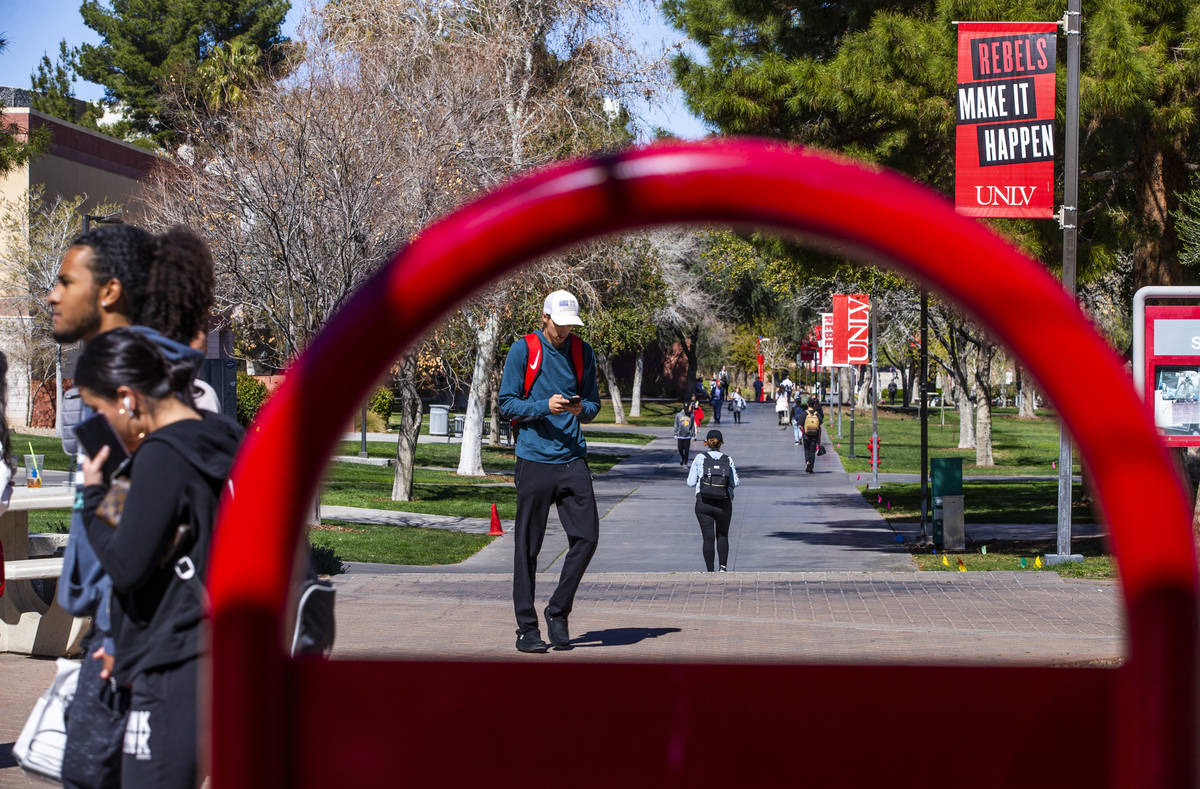ICE rule change could affect 2K international students in Nevada
Under a federal rule change announced Monday, more than 2,000 international students at Nevada colleges and universities will be prohibited from taking online-only classes during the fall semester.
U.S. Immigration and Customs Enforcement announced that international college and university students with an F-1 academic visa or M-1 vocational visa won’t be allowed to enter or remain in the country if they’re taking online-only classes this fall.
The U.S. Department of State won’t issue new visas to those students, and students currently in the U.S. must either leave the country or transfer to a school with in-person instruction to be allowed to legally stay, according to a Monday news release from ICE.
“If not, they may face immigration consequences including, but not limited to, the initiation of removal proceedings,” it said.
An exemption was issued by the federal Student and Exchange Visitor Program during spring and summer semesters due to the COVID-19 pandemic.
The Nevada System of Higher Education, which has more than 100,000 students at eight public colleges and universities, issued a statement Monday night saying that under Gov. Steve Sisolak’s reopening directives, the system anticipates “offering both in-person and on-line classes for the upcoming fall semester.”
“NSHE recognizes the valuable cultural and intellectual contributions our approximately 2,000 international students make to Nevada’s eight public higher education institutions,” it said. “NSHE is currently reviewing the new rule changes to determine how they may impact our international students.”
UNLV has approximately 1,000 students on F-1 visas and none on M-1 visas, university spokesman Tony Allen said.
Touro University Nevada doesn’t have any international students, spokesman Steven Slivka said.
College of Southern Nevada President Federico Zaragoza said Wednesday that the college plans to offer a combination of online and in-person classes this fall. “However, we have serious concerns about this new rule because it would prohibit our F-1 students from finishing their semester if our institution must transition to a fully remote learning environment again this fall,” he said.
CSN had about 345 students with an F-1 visa during spring semester, he said. “We value their contributions and oppose any rule that would discourage them from attending CSN or any of our sister NSHE institutions in the future.”
Under federal rules, F-1 students are allowed to take a maximum of one class — or three class credits — online. And F-1 students in English language training programs or M-1 students pursuing vocational degrees aren’t allowed to take any online classes.
Students attending a school using a hybrid model — a mixture of in-person and online classes — for the fall semester will be allowed to take more online classes. That’s a model that many Nevada colleges and universities plan to adopt for the fall semester.
Schools offering a hybrid model must submit a form to the Student and Exchange Visitor Program stating a student’s academic program isn’t entirely online, that the student isn’t taking a fully online course load and that the student is taking the minimum number of online classes required to make normal progress toward a degree, according to the announcement.
Schools are required to update information with the federal government within 10 days if they switch from offering in-person to online-only classes at any point during the fall semester.
Contact Julie Wootton-Greener at jgreener@reviewjournal.com or 702-387-2921. Follow @julieswootton on Twitter.











































